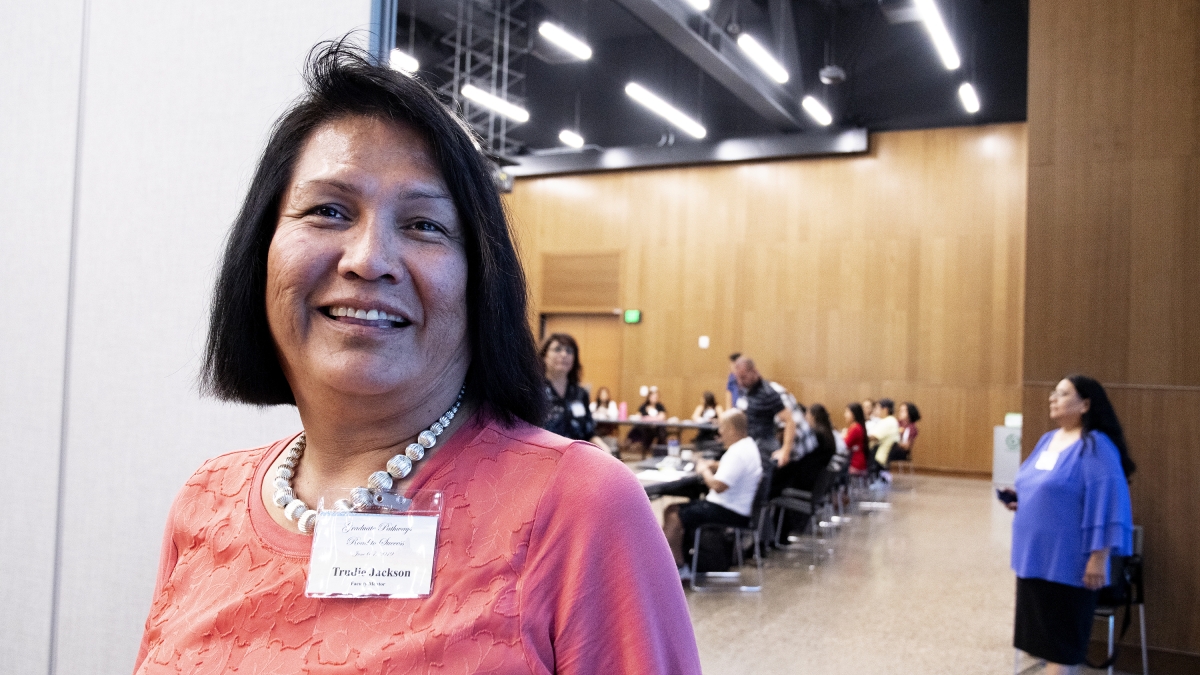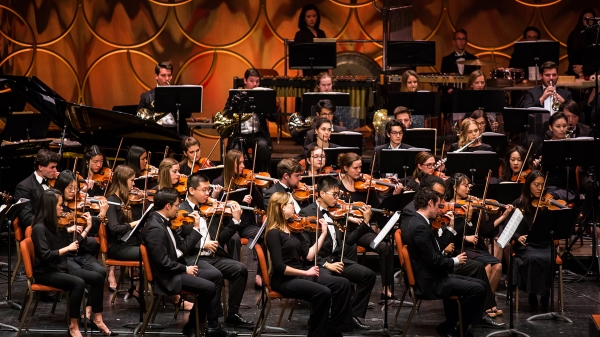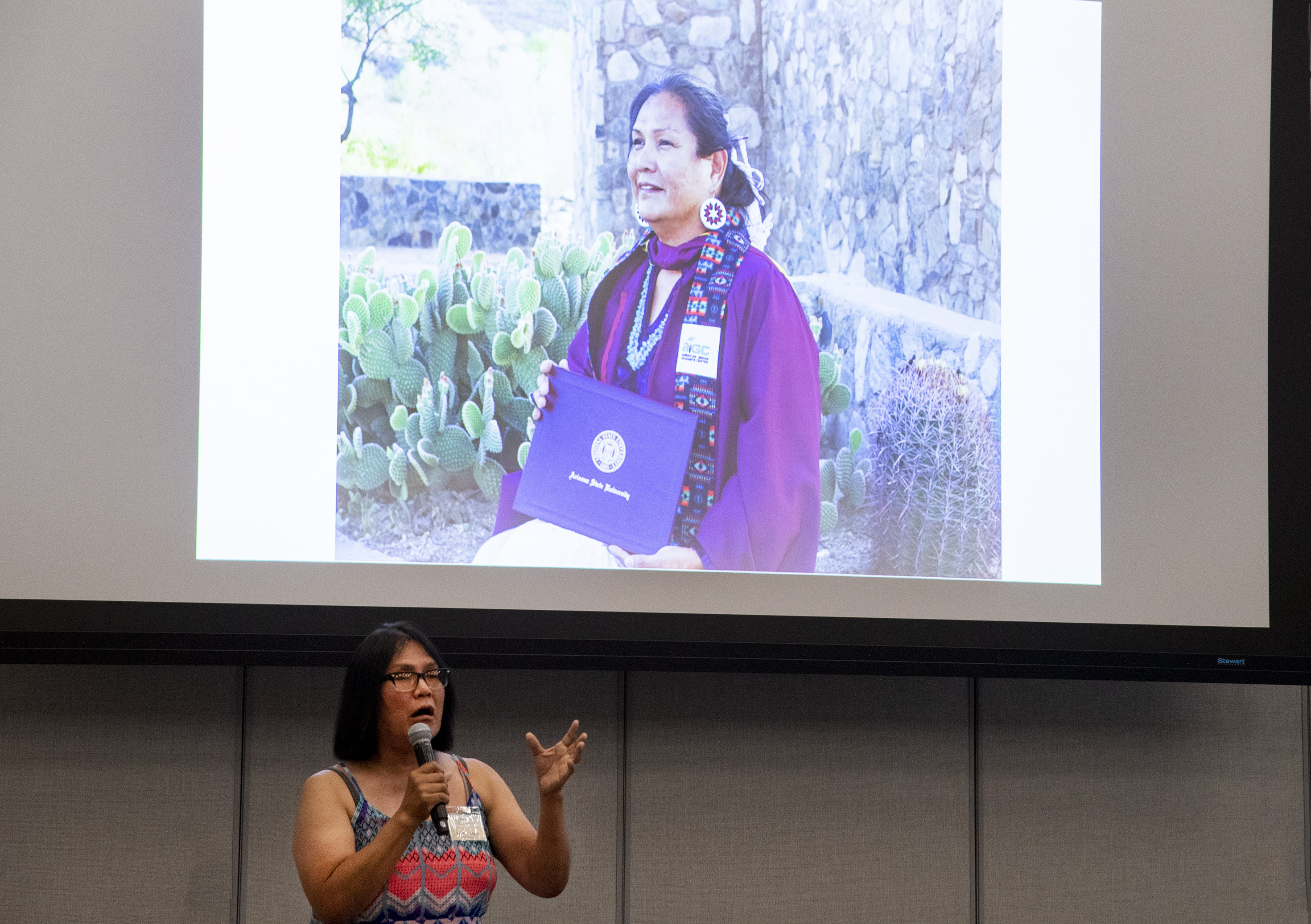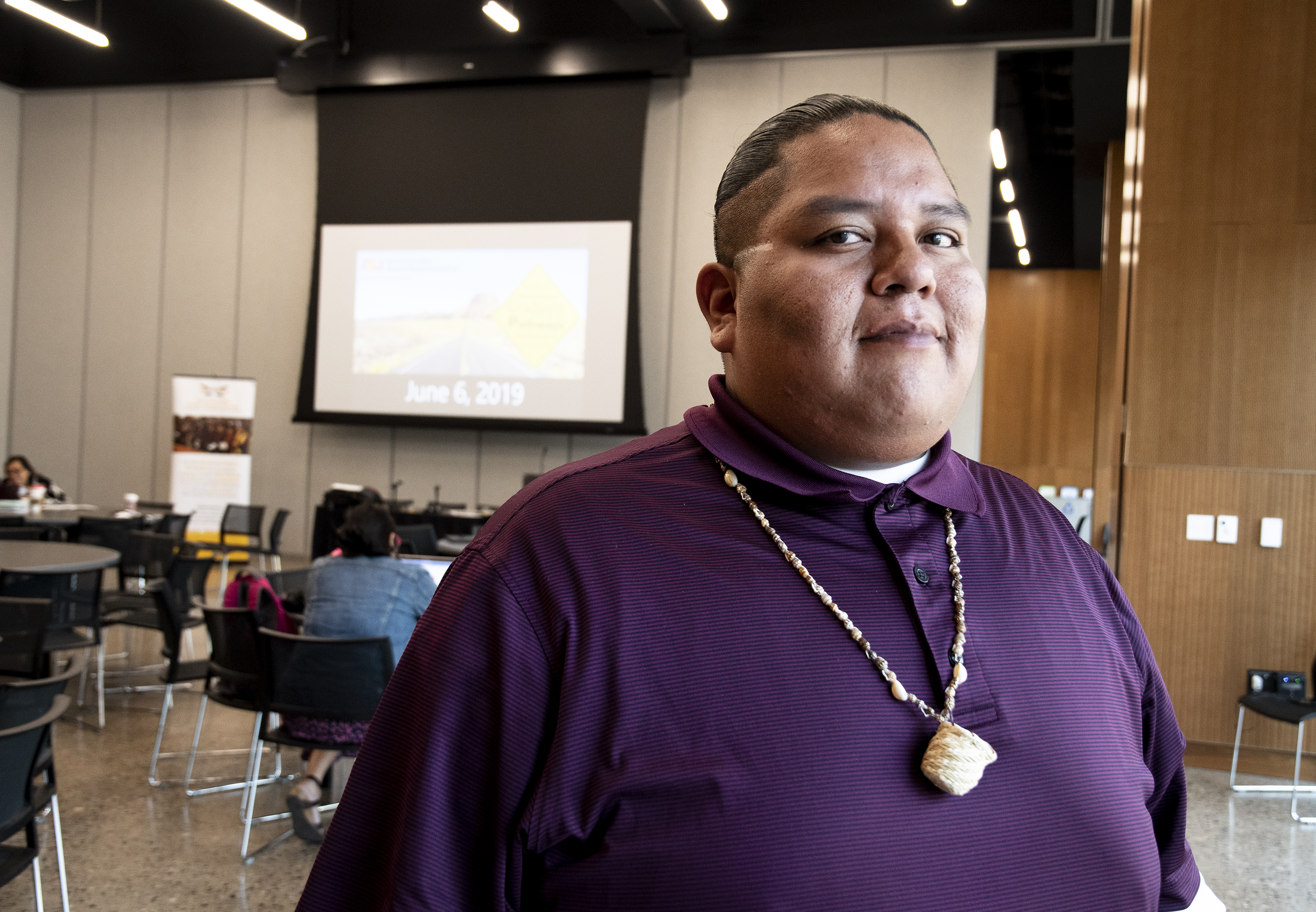Native American students explore advanced degree horizons at Graduate Pathways conference

Trudie Jackson graduated with a master's degree in tribal leadership and governance from The College's American Indian studies program.
As a transgender woman and first-generation student from the Navajo community of Teec Nos Pos in northeastern Arizona, Arizona State University alumna Trudie Jackson is used to forging her own way.
Today, she holds concurrent bachelor’s degrees in American Indian studies from The College of Liberal Arts and Sciences, and public service and public policy from the Watts College of Public Service and Community Solutions, and a master’s degree in tribal leadership and governance from The College’s American Indian studies program. But the road hasn’t been easy.
 Trudie Jackson, an alumna of The College's American Indian Studies program's master's degree track.
Trudie Jackson, an alumna of The College's American Indian Studies program's master's degree track.“Native students balance being in a Western educational institution and coming from a tribal community,” she said. “Part of going to school is just learning sometimes you had to make sacrifices — you may not be able to engage in a ceremonial event back in your community, for example, because you have a paper due.”
Learning to navigate those challenges is what led her to attend Graduate Pathways ahead of her master’s degree track a few years ago. Organized by American Indian Student Support Services (AISSS), the biennial conference helps Native American undergraduates and alumni learn more about advanced degrees and application processes.
Now pursuing a doctorate at the University of New Mexico, Jackson returned to campus this month to share her experiences with a new generation of postsecondary-bound indigenous students at the 2019 Graduate Pathways.
Alumna Trudie Jackson speaks to a room of fellow Native American students considering graduate paths.
“You may encounter professors who have never had a Native student, but that’s actually where you have the chance to share your knowledge,” Jackson said, speaking to a crowd of around 50 students, alumni and faculty mentors at the conference. “I believe one way I contribute to academia is through my own experience as an American Indian transgender woman; that perspective is not always reflected in the scholarship we read, and that’s what inspires me to keep going.”
Paving the way
According to AISSS Acting Director Laura Gonzales-Macias, more than 3,000 Native American students were enrolled at ASU in 2018, many of whom are in The College’s 23 schools and departments. Over 500 are working toward doctorates or master’s degrees.
She said the number is continuing to grow and already significant, particularly by national standards — Native Americans make up less than 1% of U.S. college students and are represented even less in graduate programs.
Several initiatives aim to bring more young people into the fold and support them once they arrive, but fewer exist at the graduate level.
Graduate Pathways was designed to bridge the gap.
“There are many challenges involved in being a Native American student, one of them being that often you are the only one in the course,” said Gonzales-Macias, who is also an instructor in The College's American Indian Studies program. “I think it is particularly important at the graduate level for these students to hear what the climate is like for indigenous students and how they can continue navigating such a large institution.”
The two-day training includes resume and personal statement workshops and one-on-one mentorship sessions with faculty from the degree programs students are interested in. Perhaps most importantly, Gonzales-Macias hopes participants walk away feeling like they’re not alone. It is a sentiment she remembers being a vital step of her own psychology graduate track at The College, in 1992.
“Coming to ASU back then, it was not as diverse a place as it is today,” she said. “I was far from home and family, a first-generation student and by then, continuing onto my doctorate — connecting with fellow Native graduates was my saving grace.”
Lasting connections
Now in its fifth year, Gonzales-Macias says the program comes full circle when alumni like Jackson return to give today’s prospective graduate students a unique insight into what’s next.
“Bringing back former participants lets new students see that someone else has been in their shoes,” she said.
That was the case for Rodney Aguilla, a Tohono O’odham tribal member who came to Graduate Pathways to learn more about advanced programs in fields spanning American Indian studies, law or teaching.
Rodney Aguilla, a senior in The College's American Indian Studies program, came to Graduate Pathways to learn more about advanced degree options.
Growing up in Three Points, Arizona, southwest of Tucson, Aguilla saw getting an education as a way to give back to the sister who raised him.
“My sister always told us that education is the key to the world,” he said. “She literally saw me go from dropping out of high school, to getting my GED, and finally, to coming here — she did a lot to help push that forward.”
He transferred to ASU from Tohono O’odham Community College last May to pursue a bachelor’s degree in American Indian studies and a minor in history, both from The College.
He said being homesick and away from family made coming to ASU difficult at first. Hearing from current graduate students at the conference made him feel like he was on the right track.
“I think as Native students, we all kind of have that extra weight on our shoulders to come back and do something for our tribe,” he said. “Meeting other students and learning from their experiences really helped, I hope to one day be here too, putting on these programs for others who come after me.”
More Arts, humanities and education

ASU Symphony Orchestra welcomes visionary conductor Jonathan Taylor Rush
Guest conductor Jonathan Taylor Rush will join Arizona State University’s Jason Caslor, director of bands, to lead the ASU…

Chemistry classes are key to art student's success
Amanda Barnette has a passion for art preservation. That means that, for the past four years, the Arizona State University…

ASU+GSV Summit tackles big questions about AI, technology, education
Editor's note: We'll be updating this story daily throughout the summit. The annual ASU+GSV Summit kicked off in San Diego on…

